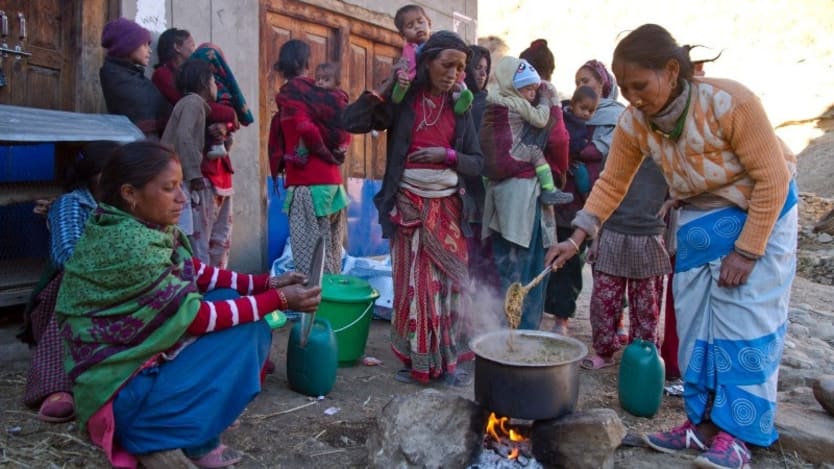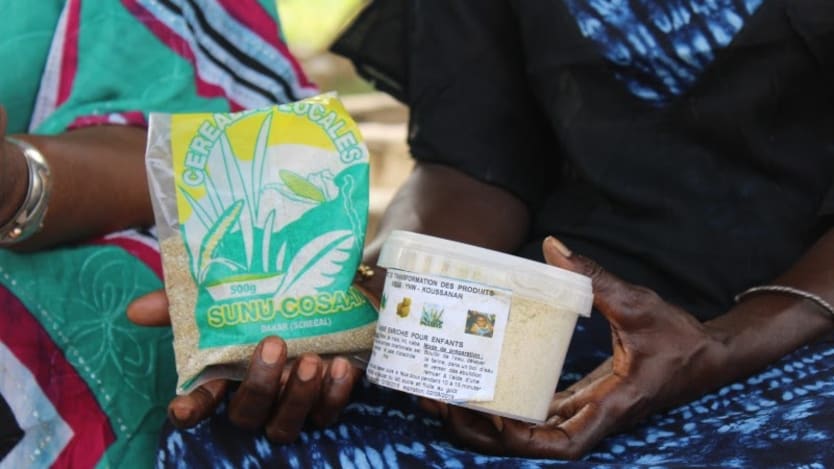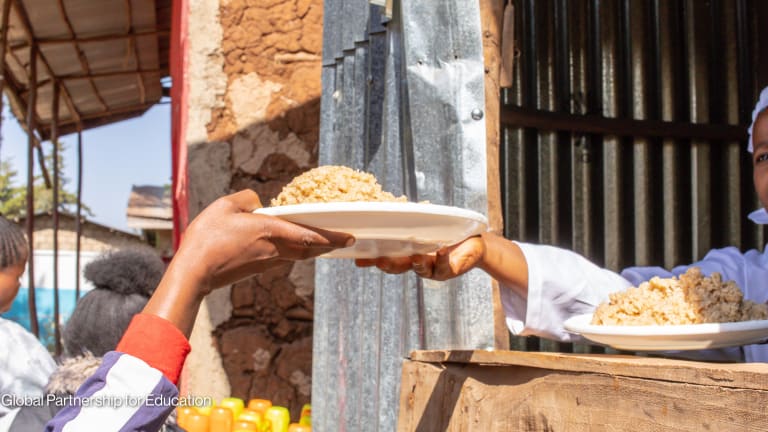
In Bangladesh, a national family farmers’ organization called the Sara Bangla Krishok Society is helping hundreds of farmers navigate the COVID-19 crisis. In May, it set up 57 virtual call centers to guide farmers in finding markets to sell their crops and shops to acquire essential equipment and services. The centers are also providing information on how to stay safe during the pandemic.
As the coronavirus compounds the crises small-scale farmers are already facing — including climate change and widespread pest outbreaks — farmers’ organizations like the Sara Bangla Krishok Society are crucial to providing a way out of the COVID-19 crisis.
To understand the importance of farmers’ organizations in this current moment, we need to look at how the pandemic is exposing the failures of the global food system.
The fragility of today’s food system is rooted in the lack of sufficient and appropriate government investment in agriculture, particularly in small-scale farmers. Instead of ensuring that farmers have access to and control over the means they need to farm, agricultural policies in recent years have favored high-cost imports. The effects of these policies have been especially detrimental in low- and middle-income countries.
For countries in southern Africa, the increasing reliance on imported hybrid seeds and synthetic fertilizers instead of sustainable farming practices has made the region more vulnerable to global economic shocks. With COVID-19 restrictions slowing imports, farmers are now limited in how much they can plant and harvest in the coming season. They are also dealing with increasing costs across the board.
Over the next few months, “crisis” levels of food insecurity are expected to continue or get worse across the Democratic Republic of the Congo, Lesotho, Madagascar, Malawi, Mozambique, Namibia, Zambia, and Zimbabwe. The Famine Early Warning Systems Network predicts that parts of Congo and Zimbabwe are on the brink of a food insecurity emergency.
In Asia, economic analysts are reporting a slowdown in economic growth and activity. The “Asian Development Outlook 2020 Update” shows that as COVID-19 continues to disrupt economic activity, the region is now expected to contract by 0.7% in 2020 and experience its first recession in nearly six decades. This will cause massive job loss and push millions of people into poverty.
Opinion: Building on past success to prevent a COVID-19-related food crisis
Governments have the power to reduce COVID-19’s impacts on global food security. ActionAid USA explains why supporting farmers in the global south is a strategic place to start.
Amid citywide shutdowns, disruptions of traditional value chains, and closures of local markets, restaurants, and hotels, family farmers everywhere are doing what they can to survive.
In short, the impacts of the COVID-19 crisis have set the world even further back from eradicating hunger by 2030. But what if there were a way to turn the crisis into an opportunity to speed up the transformation that the global food system so urgently needs?
Such a way is possible, but only by centering the participation of those most affected.

The Missing Middle Initiative — which supports the Sara Bangla Krishok Society and five other projects across the world — is leading us in that direction. It is an innovative effort of the Global Agriculture and Food Security Program, the only multilateral financial institution in the world that involves civil society organizations in decision-making.
Through a consensus model, civil society and producers’ organizations provide government and high-level officials with critical insights on farmers’ needs. Their direct engagement with GAFSP also strengthens the program’s relevance and credibility among family farmers. In fact, the concept of the Missing Middle Initiative was birthed from suggestions by civil society representatives.
As civil society members of GAFSP’s steering committee, we know firsthand that the program is successful because it strives to build on the knowledge and expertise of all actors, especially family farmers.
For example, the government of Laos in July consulted a national family farmers’ organization in designing its proposal for additional financing from GAFSP for coronavirus response. The proposal has now been approved by GAFSP’s steering committee, and the farmers’ organization is looking to further collaborate with supervising agencies and government representatives to foster an effective implementation.
GAFSP holds the solutions we need to ensure food security in the short term and to end poverty and hunger in the long term. It offers donor governments an opportunity to form effective partnerships with international financial institutions, the United Nations, and CSOs.
In July, ActionAid USA, the Asian Farmers’ Association for Sustainable Rural Development, and The Network of Peasant Organizations and Agricultural Producers in West Africa coordinated an open letter urging donor governments to replenish funding for GAFSP in the face of the COVID-19 crisis. A successful replenishment will enable GAFSP to launch a new call for proposals to support COVID-19 recovery. This will be possible if governments act swiftly and partner with GAFSP.
Global agriculture fund GAFSP embarks on new replenishment model
The little-known multilateral fund, which works on hunger and malnutrition, is seeking to raise its profile after losing financial support from the U.S.
With its democratic and flexible structure, GAFSP is uniquely positioned to diversify its interventions in recipient countries, producers, and small and medium enterprises.
In addition to pledging support for GAFSP’s replenishment, governments can develop and implement policies that incentivize small-scale sustainable agriculture, as well as programs that support family farming cooperatives to process and market their crops. In the Gambia River Valley region of Senegal, for example, two producers’ organizations are making a variety of products to sell at markets, including enriched flour for children and couscous. Their project is part of the Missing Middle Initiative.
Governments also have an important role to play in strengthening farmers’ organizations and building their collective power, especially for women. Despite making up the majority of the world’s agricultural workforce, women face a higher risk of food insecurity than men do. COVID-19 impacts are only exacerbating women farmers’ right to food. Government investment in farmers’ organizations can promote women’s access to the resources, equipment, and leadership opportunities they need to grow their livelihoods.
By investing in this program, governments will not only ensure that GAFSP remains a space for innovative approaches like the Missing Middle Initiative, but they will also be supporting family farmers who are leading the way toward a truly sustainable food system.
We invite donor governments to do their part and make official pledges to GAFSP at the virtual launch of its replenishment campaign.










